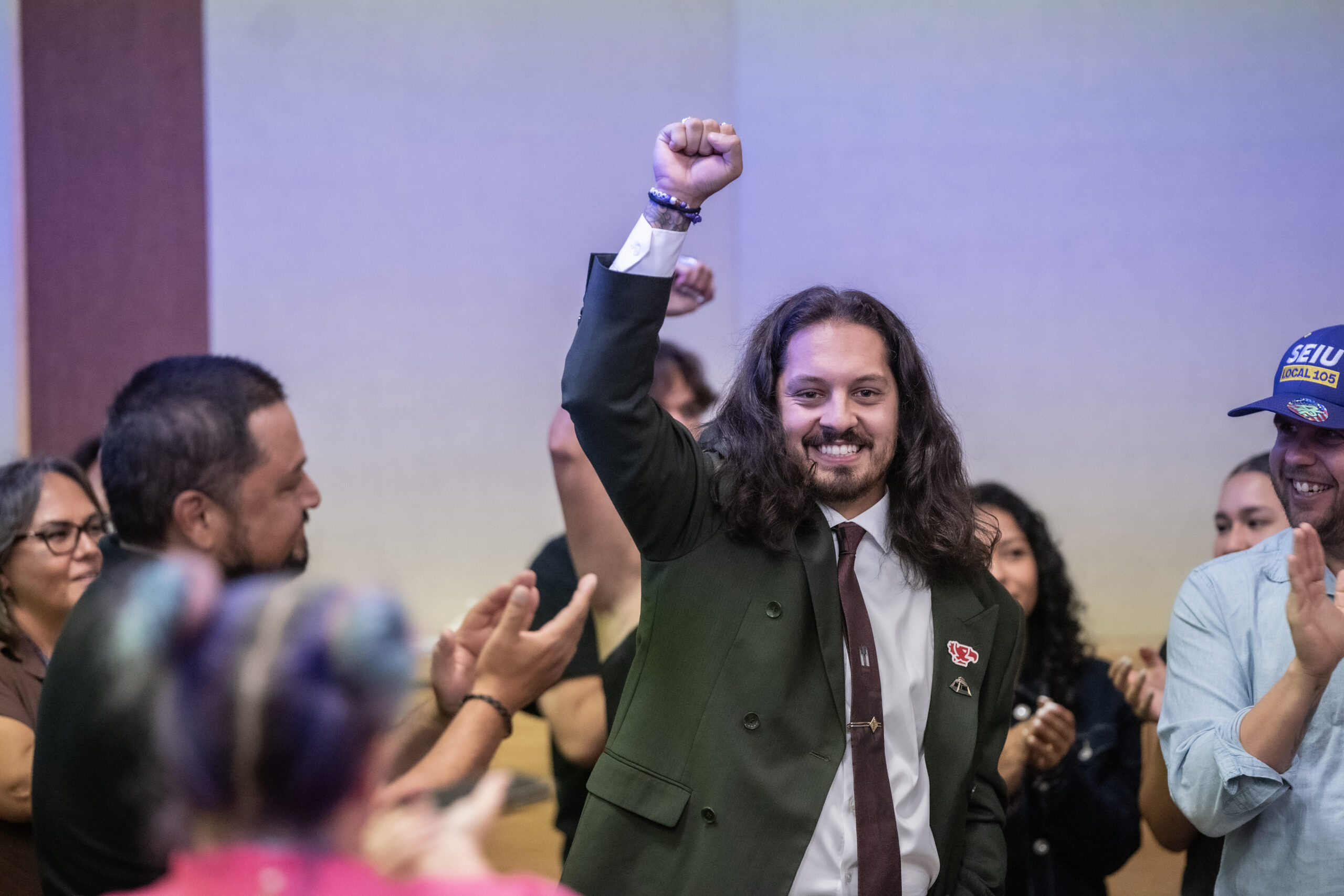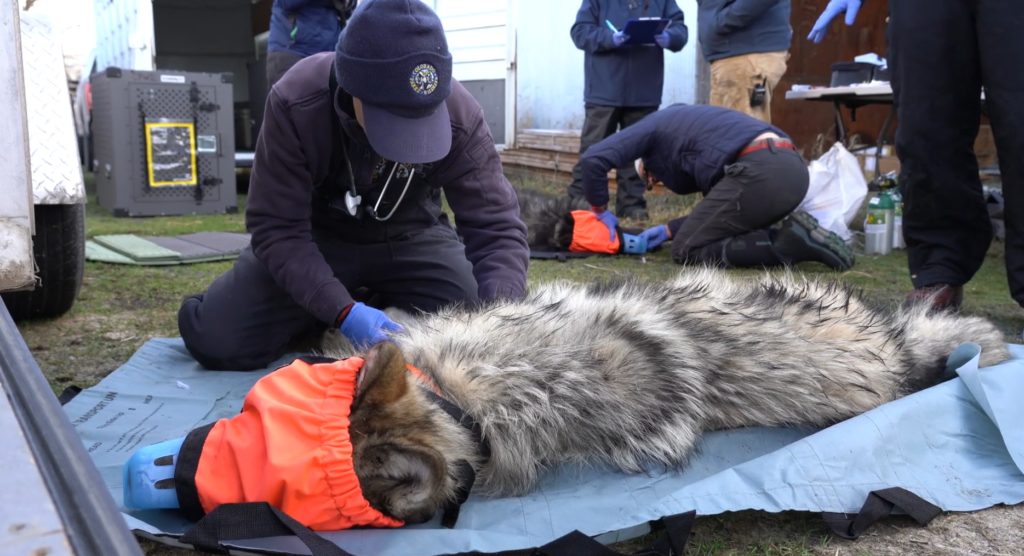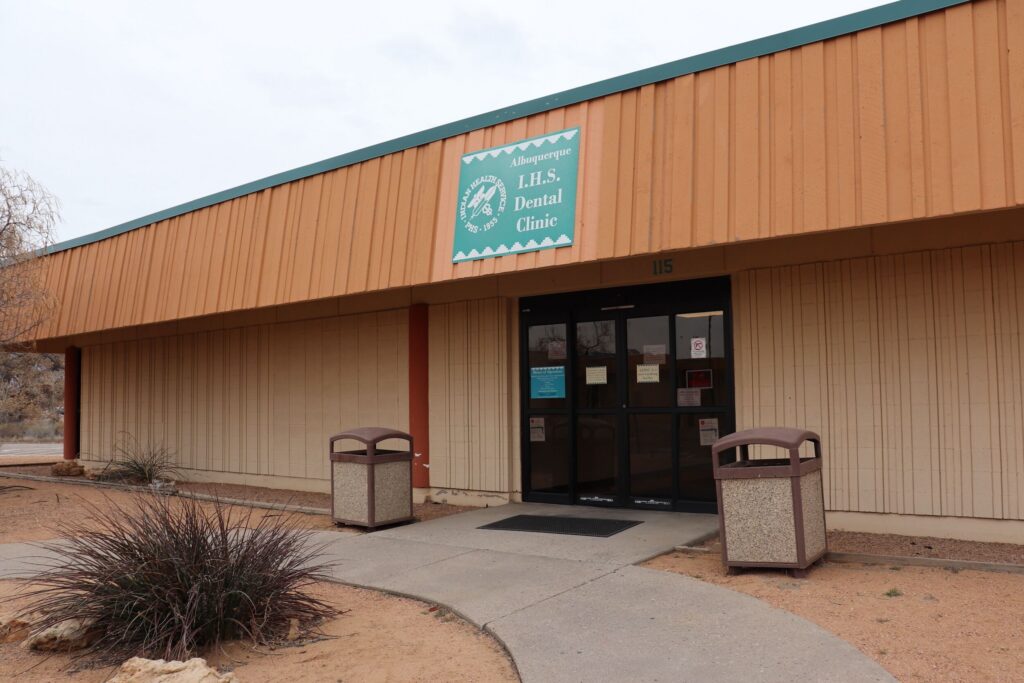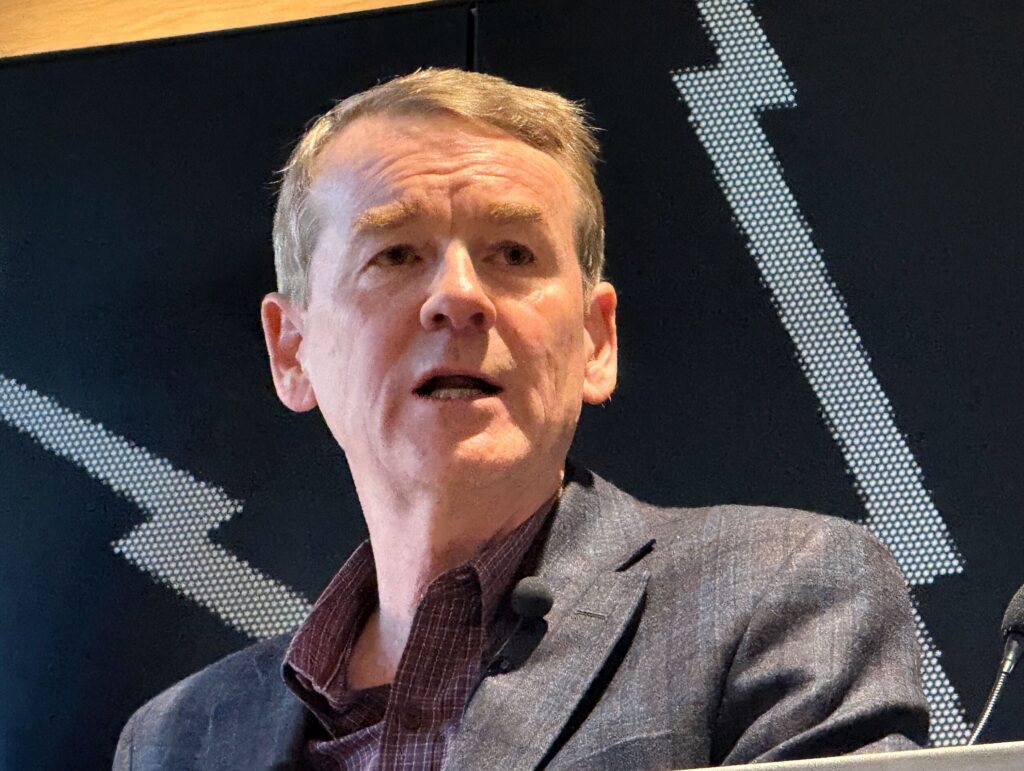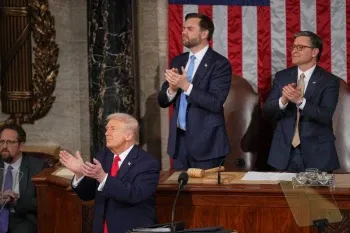Q&A with Rep.-elect Tim Hernández | Activist-turned-legislator on channeling his fire
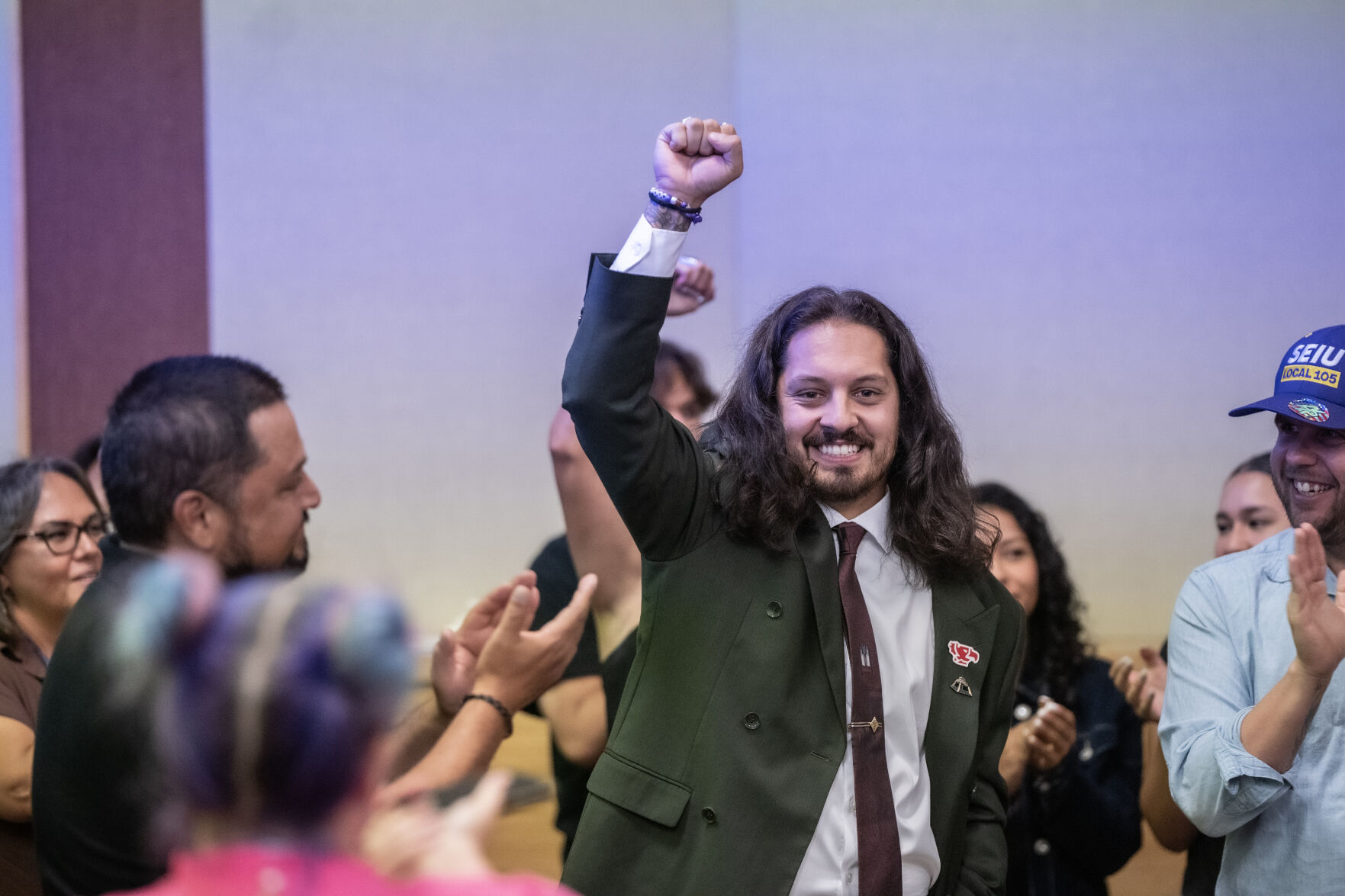
Sixteen months ago, Tim Hernández lost his job teaching at North High School. Today, he represents the school’s northwest Denver district in the Colorado House of Representatives.
A committee of Denver Democrats selected Hernández to represent House District 4 on Aug. 26, as the district’s former representative, Serena Gonzales-Gutierrez, resigned to join the Denver City Council. A lifelong Northsider, Hernández won the vacancy election over two opponents in a single round of voting, receiving 39 of 68 votes.
Hernández, 26, exploded onto Denver’s political scene after North High School did not extend his contract as the school’s only Latino literature teacher last year. This decision sparked multiple student rallies supporting Hernández and protesting the lack of diversity among educators. Hernández was put on administrative leave for joining the rallies, but he soon found other employment teaching in Aurora and became a mainstay progressive activist in Denver.
Hernández will be officially sworn into the House later this month. While he is only guaranteed office for one year to finish Gonzales-Gutierrez’s term, Hernández said he plans to run for the seat in the 2024 election. Ultimately, though, his goal is to return to North High School as a teacher.
Days into his new role, Hernández sat down with Colorado Politics to discuss the year ahead and how he will transition from a community organizer to a state legislator.
Colorado Politics: When did you realize you wanted to run for public office? What inspired you?
Rep.-elect Tim Hernández: I’m a kid from this neighborhood. I grew up with housing instability. I grew up watching our communities be displaced. I grew up going to underfunded schools. And I grew up waiting to die in a classroom because the adults weren’t being bold enough on gun violence. What changed for me is I became a teacher. I’m watching our young people go through the exact same struggles that I went through as a young person. The exact same struggles, in the exact same community, in the exact same way. … But I’m the adult now. So, I decided to run because I couldn’t take watching my students live through the same struggles in our community that I lived through. And I decided to run because I think our community has the solutions to solve our issues.
CP: What will you take from your predecessor, Councilwoman Serena Gonzales-Gutierrez, as you enter the House? Did she give you any advice?
Hernández: Oh, yeah. Serena’s been a mentor of mine for a long time. I’m really thankful for her work in the state legislature. Serena is a brilliant legislator. I’m really excited to get to work on expanding renter protections. I’m a renter, I’m a public school teacher, a college-educated person who lives in the neighborhood I grew up in, and I pay over 50% of my income on rent. But the very few renter protections we have, those are because of Serena Gonzales-Gutierrez, because she fought to keep renters like me housed. … She championed issues of housing, youth juvenile justice, public welfare for workers. I’m really excited to continue expanding on those issues in ways that I think I’ll be able to contribute to the conversation.
CP: What else do you want to accomplish over your next year as a House representative?
Hernández: My biggest goal is to work towards fully funding public schools. The budget stabilization factor was at $330 million, and last year it was bought down by $150 million. And that was great, I was really excited to see that the state legislature was bold on school finance. But we still have $180 million to go. We’re still completely underfunding. We’re still not even remotely close to the ways that we should be funding schools now. I want to help buy down the other $180 million. I want to fully fund our public schools and maybe even work on some good issues that are relevant to teachers and students and workers in schools, too.
CP: You’re entering the House at a really interesting time. The Democrats hold a near unprecedented 46-19 party advantage, but throughout last session, we saw the progressive and establishment sides of the caucus butt heads. As a progressive yourself, do you think you can move the caucus more in your direction?
Hernández: Yeah. If I didn’t, I wouldn’t have run. Look, I think last year was one of the most progressive sessions we’ve had on a variety of issues. … But we know that we have a lot of work to do to get to a place of progress, a place of equity, a place of justice and a place of safety. I think our leadership is doing a good job of making sure that we can consolidate our political power. And I think it’s important to remember that progressives have always pushed the Democratic Party on their values. There was a point in time when the Democratic Party was anti-immigration. When the Democratic Party wasn’t on the side of the abortion issue that it is now. When the Democratic Party wasn’t in place with a variety of issues that we are now. It took progressives pushing our values so that we could become the party that represents the actual working and living conditions of the people. That’s the responsibility of progressives.
Now, there’s a whole other conversation of how that plays out and the pragmatism of that. That question comes from a valid place. Folks that might align more closely with my values have experienced things in (the state Capitol) that are really complicated and really difficult. We have a Democratic trifecta of government and we’re struggling to pass Democratic bills. It’s going to take all of us. I think that my job in there is to push us on our values and to build as many tables as we can to represent people effectively in the North and West side (of Denver). And making sure that I remain committed to the values and principles that I was elected to represent.
CP: How do you intend to push forward your ideas in a caucus that just rejected rent control, just cause evictions, an assault weapons ban – a lot of the policies that you’ve advocated for?
Hernández: It’s going to be an uphill battle, but I’m not new to uphill battles. Because we’re talking about social change. We’re talking about fundamentally adapting our society to operate in a different way so that it works for poor people, for students, for teachers, for workers. I view my role as continuing to push progressive values from a place of lived experience. I’ll be the only person in the state legislature who is a Latino teacher, when Latino kids make up the majority of our public schools in Denver, in Aurora. That means I’m not just speaking for myself, I’m speaking for a generation of students, a generation of people. We’re living with the impacts of political decisions in our communities right now. I know that deep down, even if folks are hesitant towards progress, they’re still willing to understand and accept that folks in our community are living with the issues, living with the outcomes of policies. That’s important to how we influence political change.
CP: Before entering the legislature yourself, you were open about your criticisms of state legislators, calling out Democrats and Republicans alike on Twitter. You called the House Republicans “cowards” for their walkout at the end of last session, you condemned Democratic Sen. Dylan Roberts for killing the rent control bill.
With these people now your colleagues, how can we expect those interactions to go? Are you going to continue to be so outspoken, or will you be more moderated?
Hernández: I’m going to be a good legislator because I’m a good teacher. … Teachers organize 35 kids one hour at a time to do one thing. To pass a bill in the House, you need 33 votes, so all we need to do is organize 33 people at one time. I know I have the skills to do that. But there is a way that we have to adapt. We have to adapt the way that we make decisions, that we advocate and we organize, according to the political conditions of the Capitol.
As a community organizer, I was like a wildfire. Now, it’s about becoming a blowtorch. It’s about making sure that we can remain committed to the principles and the fires that we have, but going to our colleagues and saying, “I’m not in favor of that decision, here’s why,” compared to blasting somebody on social media. That is a role that folks bleed between and how folks choose to do that is up to them. But I’m really planning on building strong personal relationships, even through complex and complicated issues where we’re not on the same side. And also involving our community at every step of the way to make sure they’re engaged with the process and the outcomes.
CP: The Republican Party and outlets like Fox News have been immediately critical of your appointment. The Colorado GOP sent out fundraising emails and social media posts with your face photoshopped next to a Communist flag, saying Democrats “need to be stopped.” Do you have hopes of building those relationships in a bipartisan manner?
Hernández: I’m willing to work with anybody who’s willing to work towards anti-oppressive policies in the Capitol. Anybody who is willing to work against oppression is an ally to me. Regardless of whether you’re a Republican or a Democrat, if you’re in favor of lifting oppressive policies and enacting just ones, then we’re going to be on the same side of the fence. … But I’m not surprised the Colorado GOP has to use my face, my words, my story to fundraise for a political party that can’t win races. They can’t win them on their own, so they have to use me.
CP: At 26 years old, you’re now Colorado’s youngest state legislator and our first legislator from Generation Z. How does that feel, and how will it influence your work in the House?
Hernández: Folks can react to me in whatever way they want. They can be kind and receptive and open and collaborative. They can be villainizing and dehumanizing. But the plain and simple fact is I’m the first of an entire generation of Coloradans who are going to be in these spaces. And here’s the fundamental truth about my candidacy: Gen Z understands the democracy we have to build towards is a multi-cultural, multi-ethnic democracy. Unfortunately, folks currently in office oftentimes don’t see that reality. But I do, because I work in schools. … Our (school) districts are overwhelmingly Black and brown in Denver and Aurora. Across the state, Latino students are making up more and more of their student bodies and populations. That means there’s a certain inevitability to the politics that I represent, to the politics I fight for.
You can choose not to listen to me and to dehumanize and invalidate me and my politics and my opinions and my ideas. But you will not do that to our generation. I might be the first, but there is no way in hell I will be the last. Young people will continue to build our political power to a politics that we know will fundamentally change our social conditions. If you choose not to listen to me, then that’s okay. But this is an opportunity for the legislature to understand and navigate how they’re going to work with generations of the future.
CP: You’ve also spoken a lot about your identity as a Chicano. While Colorado’s Latino population is underrepresented in the legislature, your appointment maintains the size of the Latino caucus. What does it mean to you to be part of that Latino representation?
Hernández: I’m really thankful to work with Latinos from across the state, from the Western Slope, from the San Luis Valley and from all over. Because I think that Latinos are the future of Colorado. We also are the most underrepresented group in the state legislature. We make up almost 25% of the state population, and we are only 14% of the legislature. White folks are overrepresented in the legislature. I’m hopeful for parity in the future. If 25% of the population are Latinos, then 25% of our legislators should be Latinos. We’re on a precipice, and I’m very thankful that the voters of HD4 decided to uphold the current representation that we have. I’m hoping we can build that wider and wider.
CP: What does your appointment to the House mean for your teaching career? Do you plan to return to the classroom?
Hernández: I’ll actually be in the classroom as I’m legislating. I’ll be teaching throughout the year. I’m very excited to be able to remain in the classroom, so that way I can legislate from a place of lived experience with the outcomes in our classrooms.
This year, I’m teaching with (the University of Colorado) to build out a program called Pathways2Teaching, which is a concurrent enrollment program to encourage more Black and brown students to become teachers. … I’ll be facilitating that program and I’ll also be teaching at Urban Peak, which is a school for unhoused students in Denver. Because I’m teaching through CU, I can adjust the classes around the legislative schedule, but I’ll be in the classroom full-time until January.
CP: I know that you brought some of your students to the HD4 vacancy election. How did your students react to your appointment?
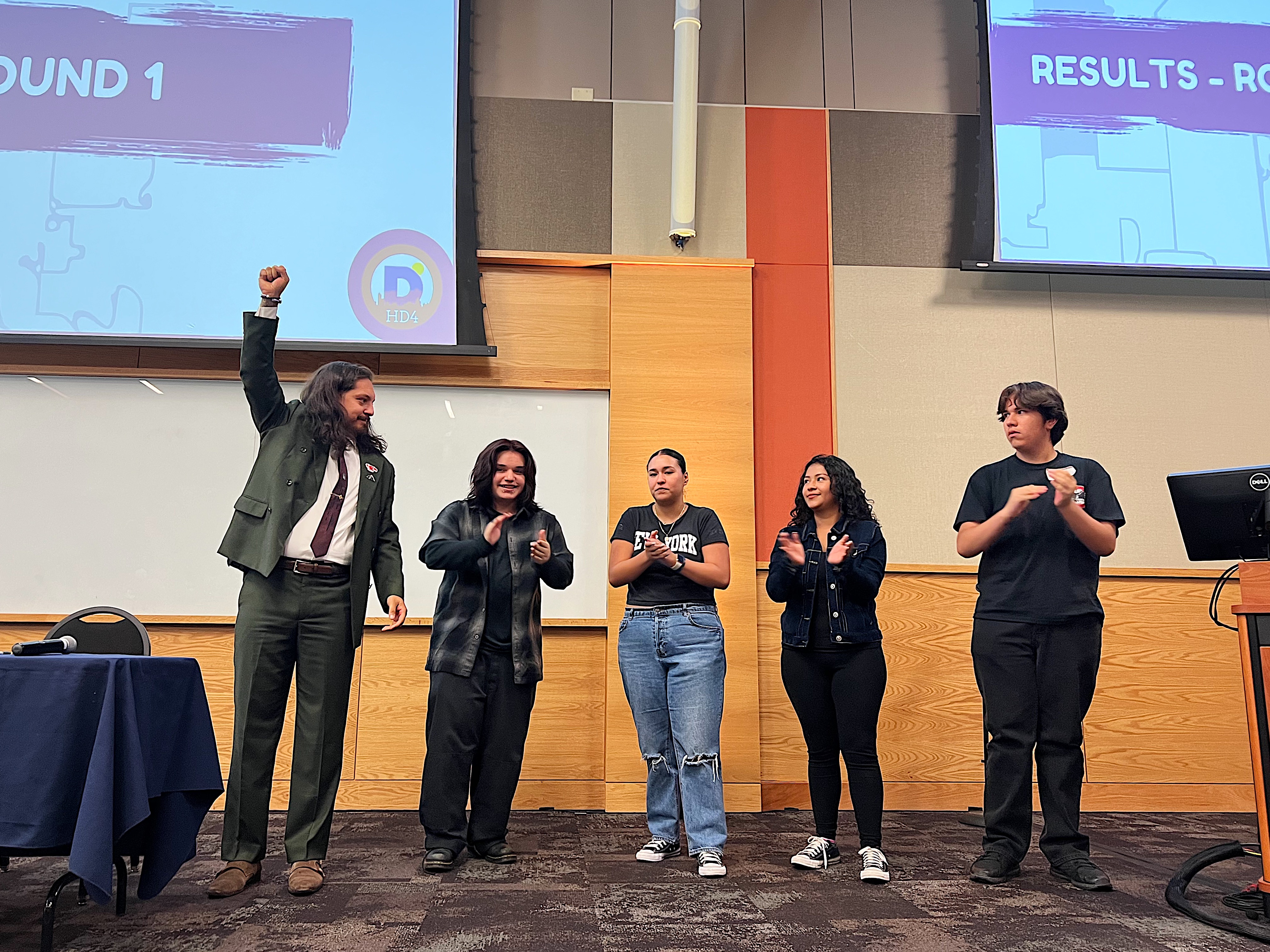
hannah.metzger@coloradopolitics.com
Hernández: Oh, man. I’m going to try not to cry as I answer this one. My students watched as Denver Public Schools fired me. As Denver Public Schools publicly exited me and placed me on administrative leave. And as Denver Public Schools villainized me in the press and to families around the district. When talking with my students about what it was like on Saturday for them, they said it was so beautiful to see us finally win. … My students and I are hopeful that I’ll return to North High School to teach Chicano studies and ethnic studies. And we’re hoping that our victory in the state legislature might encourage Denver Public Schools to review its approach and its decisions when it comes to hiring practices.
CP: Thinking of your students still, what do you want them to get out of your time in office?
Hernández: That if we dare to struggle, we dare to win. And if we dare not struggle, then we don’t deserve to win. We fought for something very publicly. We fought for more teachers of color, we fought for Chicano studies classes and ethnic studies classes, and we fought for each other. The legislature proves that when we fight, we’ll win. It may not be immediately, it may not be in the way we thought it would be. … But as long as we remain guided by our ancestors and continue to fight, we will win.
